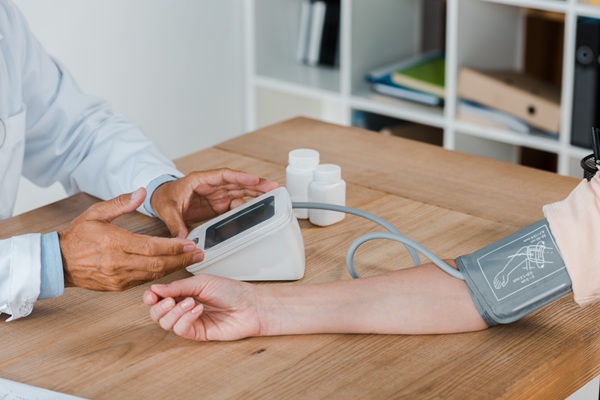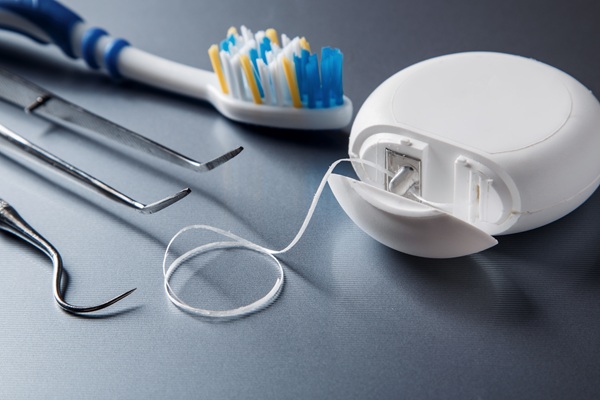As we all know, tooth extraction is one of the most common dental procedures performed on individuals of all ages. Usually, when a dentist requires you to get a tooth extraction, it’s typically because it requires you to remove damaged, decayed, or impacted teeth.
Tooth extraction has been practised since ancient times and has evolved over the decades. It is generally safe, especially when done by qualified and skilled dentists—however, some patients may be advised against it due to underlying medical conditions, such as hypertension
Why is that?
In this blog, our dental professionals at Bellevue Hill Dental are here to let you know the reason why tooth extraction is not a good option for people who have hypertension. We will also discuss the potential complications and the steps your dentist may take to safeguard your health.
Getting to Know Tooth Extraction and Hypertension
Before we go into why tooth extraction is not recommended for people with hypertension, let’s define each one first.
What is a Tooth Extraction?
A tooth extraction is a dental treatment that involves removing a tooth from its socket in the jawbone. Typically, dentists may recommend this procedure for reasons such as severe tooth decay, gum disease, overcrowding, or impacted wisdom teeth.
The tooth extraction procedure can be simple or surgical, depending on the complexity of the case. While routine extractions are low-risk for most patients, those with certain health conditions, like hypertension, require extra precautions.
What is Hypertension?
Hypertension, or high blood pressure, occurs when the force of blood against the walls of your arteries is consistently too high. This condition can strain your heart, blood vessels, and other organs over time, which then increases the risk of getting heart disease, stroke, and other complications.
When hypertension is uncontrolled, it poses significant risks during medical and dental procedures, just like in tooth extraction.
Why is Tooth Extraction Risky for Hypertensive Patients?
As mentioned, hypertension can pose a threat to your health as it strains other organs of your body, especially the heart. Hypertension can also complicate a tooth extraction treatment because of different factors, including:
Bleeding Risks
High blood pressure affects the blood vessels. Because the procedure is going to include taking out a tooth from the socket, it might make it harder to control bleeding during and after a tooth extraction process. If that happens, it will lead to excessive bleeding and will delay healing and increase the risk of infection.
Anaesthesia Sensitivity
Local anaesthetics containing adrenaline are often used during extractions to numb the area and reduce bleeding. Injecting adrenaline helps your heart beat faster to send more blood to the brain and other parts of the body. However, because of how adrenaline can cause a temporary spike in blood pressure, it may be dangerous for patients with hypertension, especially during a tooth extraction treatment.
Stress and Anxiety
Let’s face it—some of us get stressed and anxious whenever we are bound to get dental procedures, which can actually trigger stress. Stress can, in turn, elevate blood pressure levels, which results in high blood pressure. For hypertensive patients, this added pressure could lead to complications such as chest pain or even a hypertensive crisis.
Wound Healing Concerns
Because of high blood pressure in the blood vessels, it can also slow down the body’s ability to heal. This will potentially lead to prolonged recovery times or complications like dry sockets and infections.
Because of these factors, dentists typically implement precautionary measures first before starting the procedure.
Precautions for Hypertensive Patients Needing Tooth Extraction
Pre-Treatment Assessment
Before proceeding with a tooth extraction treatment, your dentist will assess your medical history and current health status. This includes:
- Measuring your blood pressure.
- Reviewing your medications for hypertension.
- Collaborating with your doctor if adjustments to your treatment plan are necessary.
When is Tooth Extraction Not Recommended?
A tooth extraction procedure is generally postponed if your blood pressure readings are significantly high, such as 180/110 mmHg or above. This is because the risk of complications outweighs the benefits of immediate treatment.
When it is highly recommended that you get your tooth extracted, the good news is your dentist can do a few things before you even sit on the dental chair.
Steps to Safely Manage Hypertension Before an Extraction
- Stabilising Blood Pressure: Your doctor may adjust your medication to better control your blood pressure.
- Stress Management: Techniques like deep breathing, mindfulness, or pre-medication may be used to help you stay calm during the procedure.
- Use of Alternative Anaesthetics: Dentists may opt for anaesthetics without adrenaline to minimise the risk of blood pressure spikes.
Potential Complications of Ignoring Hypertension During Tooth Extraction
Now, if you proceed to get your tooth extraction even with hypertension, it’s more likely that you can get these complications:
Hypertensive Crisis
A sudden and severe spike in blood pressure during the procedure can lead to life-threatening conditions like a stroke or heart attack.
Uncontrolled Bleeding
Excessive bleeding can occur during or after the tooth extraction procedure, requiring additional medical intervention.
Delayed Healing and Infections
Hypertension can hinder the body’s natural healing abilities, which would make you more susceptible to infections or prolonged recovery times.
Everyone wants to get their tooth extraction procedure done right and without any complications. So, to eliminate these risks, aside from the precautionary measures your dentist can do, it’s best to communicate to your dentist about what and how you’re feeling before your procedure. This will help them find a way for you to feel relaxed and calm throughout the whole process.
Your Health Comes First
Generally speaking, tooth extraction is already a common procedure that has evolved over the decades and is now a safe and effective procedure to do when done right. However, it still requires special attention when hypertension is involved. The good thing about it is that there are ways for you to avoid the risks of getting complications by controlling your blood pressure, working closely with your healthcare providers, and following your dentist’s advice.
With this information, you will be able to minimise risks and ensure a smooth recovery for your tooth extraction.
If you’re looking to get a tooth extraction within Bellevue Hill, NSW, our dental professionals at Bellevue Hill Dental are here to help you feel at ease before, during, and even after your procedure. And if you’re concerned about hypertension and tooth extraction, our caring team takes the time to understand your health needs first before we recommend various personalised treatment options. Contact us today to schedule a consultation and discuss your dental care in a comfortable and supportive environment.



